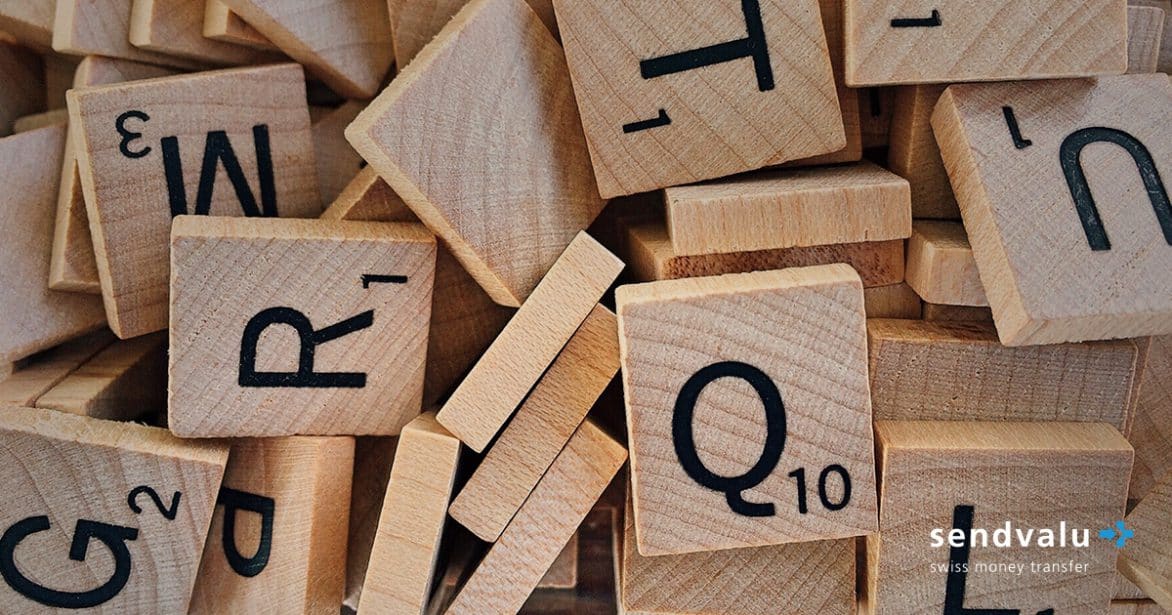Let us preserve our cultural heritage – send happiness on World Mother Tongue Day and send money with sendvalu.
On 21 February, UNESCO calls for the promotion of linguistic and cultural diversity. It focuses on languages that are threatened with extinction with less than 10,000 speakers. And those are more than we think – about one third of all languages spoken worldwide! But languages are so important because they not only serve communication but also make up the majority of our cultural identity.
And how could we make friends around the world if we did not learn foreign languages? Multilingualism and foreign language teaching help us to live together respectfully and peacefully across all borders. Help your friends to invest in further education – send money with sendvalu.
What is your mother tongue?
The mother tongue is not necessarily the language of our mother, but the language we speak first in our lives. It can be taught to us by any closer person, and the great thing about mother tongues is that we learn it without any lessons! However, our mother tongue is not always the language that we master best or that accompanies us for the rest of our lives. Anyone who moves to another country as a child or adult quickly speaks another language in everyday use. Thus it can happen that the knowledge of one's mother tongue decreases or even gets lost if it is no longer used regularly. The term "first language", as it is used in linguistics, is therefore more accurate than "mother tongue". Do you know someone who has moved to another country? Even with small amounts you can support family and friends. The easiest way is with sendvalu: transfer money with Mastercard, Visa or credit card and send happiness.
Do you speak several languages?
Bilingualism means mastering two or more languages. That means that as a child, you learn several languages from parents or family members who speak different languages – this is the difference to a foreign language, which you learn during a targeted learning process. There are countries where two official languages are completely normal and the inhabitants educate their children bilingually. To be bilingual means to speak the second language as well as the mother tongue. Of course you can also speak a foreign language very well – this is proven by the many enthusiastic language students all over the world.
One of them is Ioannis Ikonomou – he speaks over 30 languages! Before his tenth birthday, he had already mastered English, German and Italian. As a teenager he learned Russian, Swahili and Turkish, so at only 16 he knew more languages than most adults. No wonder he works as one of the best translators of the European Commission. He developed his fascination and curiosity for foreign languages as a child on the Cretan beach, where he was amazed by the many different languages of tourists that he wanted to be able to understand. He learned his first foreign languages at school and from native speakers who taught him their languages. Nowadays he watches foreign language television and chats with people from all over the world to improve his language skills. It is above all his boundless curiosity about foreign cultures, religions and ways of life that drives him to spend months working with a foreign language.69b52749-0d35-4ef2-8c9f-64605e3e51de.jpg?sfvrsn=e9ae8283_17)
How many languages are there in the world?
The number of languages worldwide is estimated at about 7000. More than half of the world's population speaks one of the nearly 20 most spoken languages, a third consists of minorities, which are often so small that their languages are threatened with extinction.
What is the most widely spoken mother tongue in the world? Chinese, with about 900 million native speakers! After that follow Spanish (approx. 470 million), English (approx. 380 million), Arabic (approx. 315 million), Hindi (approx. 260 million), Bengali (approx. 243 million), Portuguese (approx. 223 million), Russian (approx. 154 million), Panjabi (approx. 135 million) and Japanese (approx. 128 million). The languages with the most speakers (i.e. not only native speakers) are English, Chinese and Spanish.
This is not surprising, as English is considered to be the world language. Especially after the colonization of America and the colonial policy of Great Britain, the English language spread all over the world in the course of the centuries. Today, English is the first foreign language taught at school in many countries. But Chinese is also gaining in importance internationally and, above all, economically. Spanish is mainly spoken in South America, and the continent's attractiveness is a motivation for many people to learn Spanish. And how many people have German as their mother tongue? It is estimated that there are about 94 million people worldwide, making German the 11th most widely spoken mother tongue in the world.
But where are the other languages spoken? In Papua New Guinea alone, there are over 800 languages – more than twice as many as in Europe! In Indonesia there are at least 700, in China and India "only" 300-400. But why are there so many languages there? Indonesia consists of over 17,000 islands – when there was no connection between them and the islanders had no contact to each other, everyone used their own language. A similar diversity existed before the landing of the colonial powers in South America. Today the continent is almost completely Spanish-speaking, except for Brazil, where Portuguese is spoken. Do you have friends in South America? With sendvalu you can easily send money to Cuba by credit card (Mastercard or Visa).
Why do languages die out?
Globalisation has contributed a great deal to the fact that many of the world's 7000 languages are spoken, but only by a few speakers. In intercultural relationships, one or two languages are usually chosen and taught to the children – who would teach their children three or four different languages nowadays? World languages are becoming increasingly important, and in most states and communities, for economic reasons, there are usually only one or two official languages that apply to all residents. Thus, centuries-old languages that are no longer accessible to a larger majority are gradually disappearing.
One example is Ainu (originally spoken by indigenous people in northern Japan), a language that is almost extinct with just 10 speakers remaining. Ainu was long regarded as inferior in Japanese society, so that many population groups decided to speak only the majority language in order not to be excluded or left behind. The situation in the Philippines is somewhat different: although there are more than 170 different languages here (the two official languages are Filipino and English), there are also many so-called expats. These are people who live and work in other countries and therefore mainly speak foreign languages. Would you like to support someone? Send money to the Philippines – fast and easy with sendvalu.
How can you preserve threatened languages?
Many countries and communities strive to preserve different languages and dialects. Every year since 2000, on World Mother Tongue Day, UNESCO has been creating an awareness that many languages are gradually forgotten because for various reasons they are no longer passed on to future generations. That is why linguistic and cultural diversity will be celebrated and experienced everywhere on 21 February.
Is there a project you can support? Send money and help to preserve a piece of culture.
The International Mother Language Day goes back to the Bengali language movement. In East Pakistan at that time, large sections of the population were committed to recognising the Bengali language as the official state language. The inhabitants of Bengal protested on 21 February 1952 against the introduction of Urdu as an official language, as it was mainly spoken by the ruling class (only 3% of the population), whereas the widespread Bengali language was to be suppressed. 20 years later, East Bengal became independent and today's Bangladesh - with the official language Bengali. The protests claimed lives, which is why 21 February is celebrated in Bangladesh as Martyrs' Day. UNESCO made this day the International Mother Tongue Day in 1999.




Leave a comment